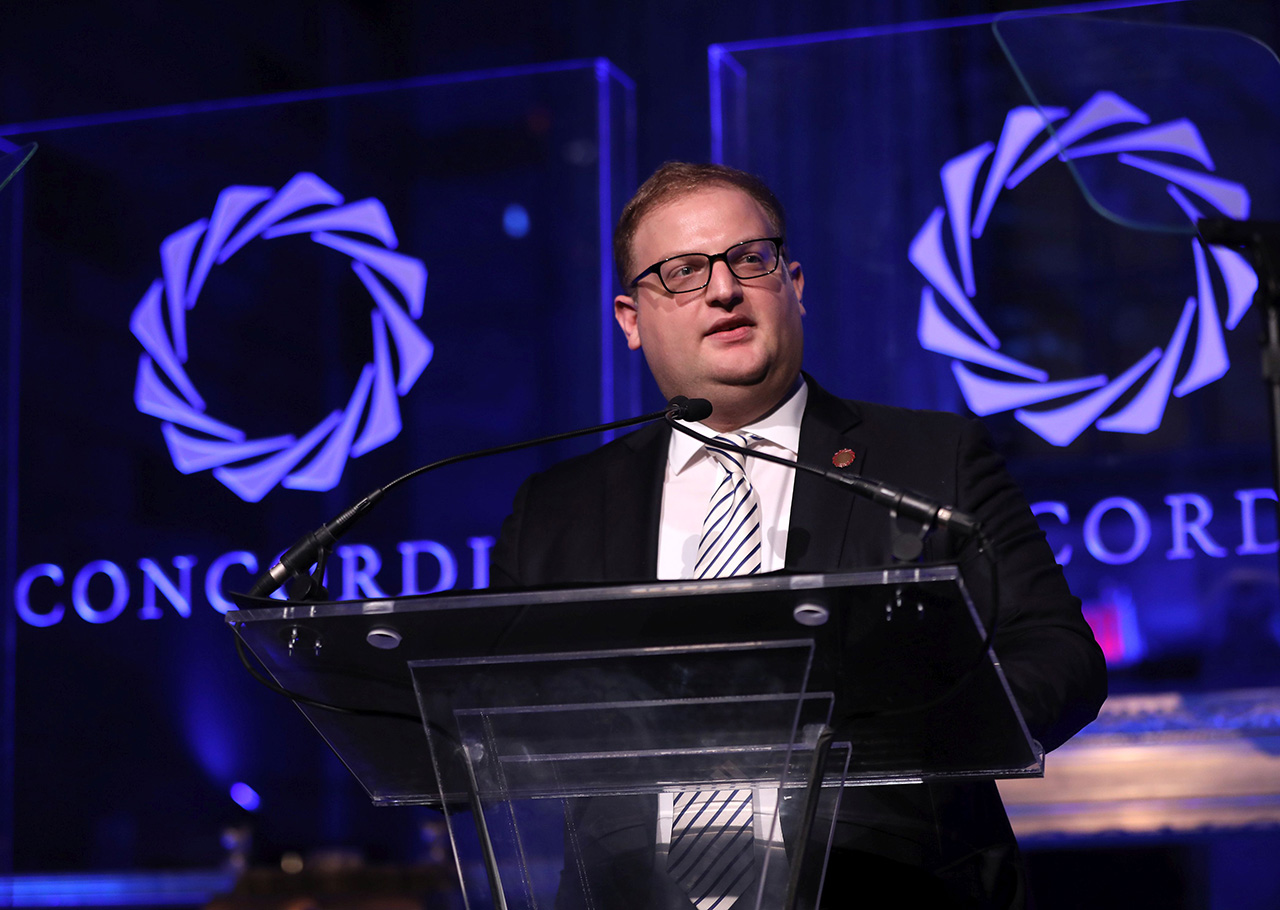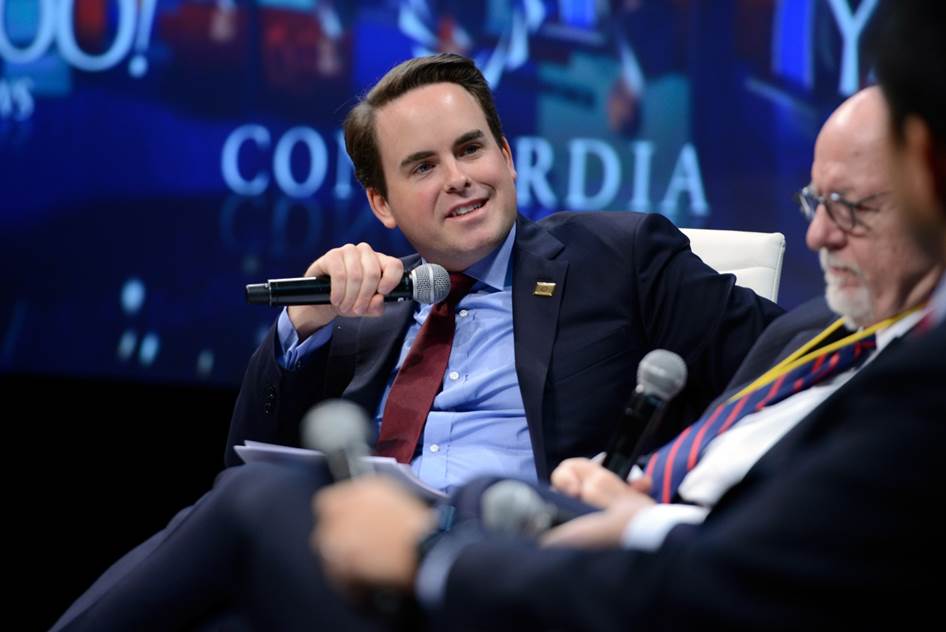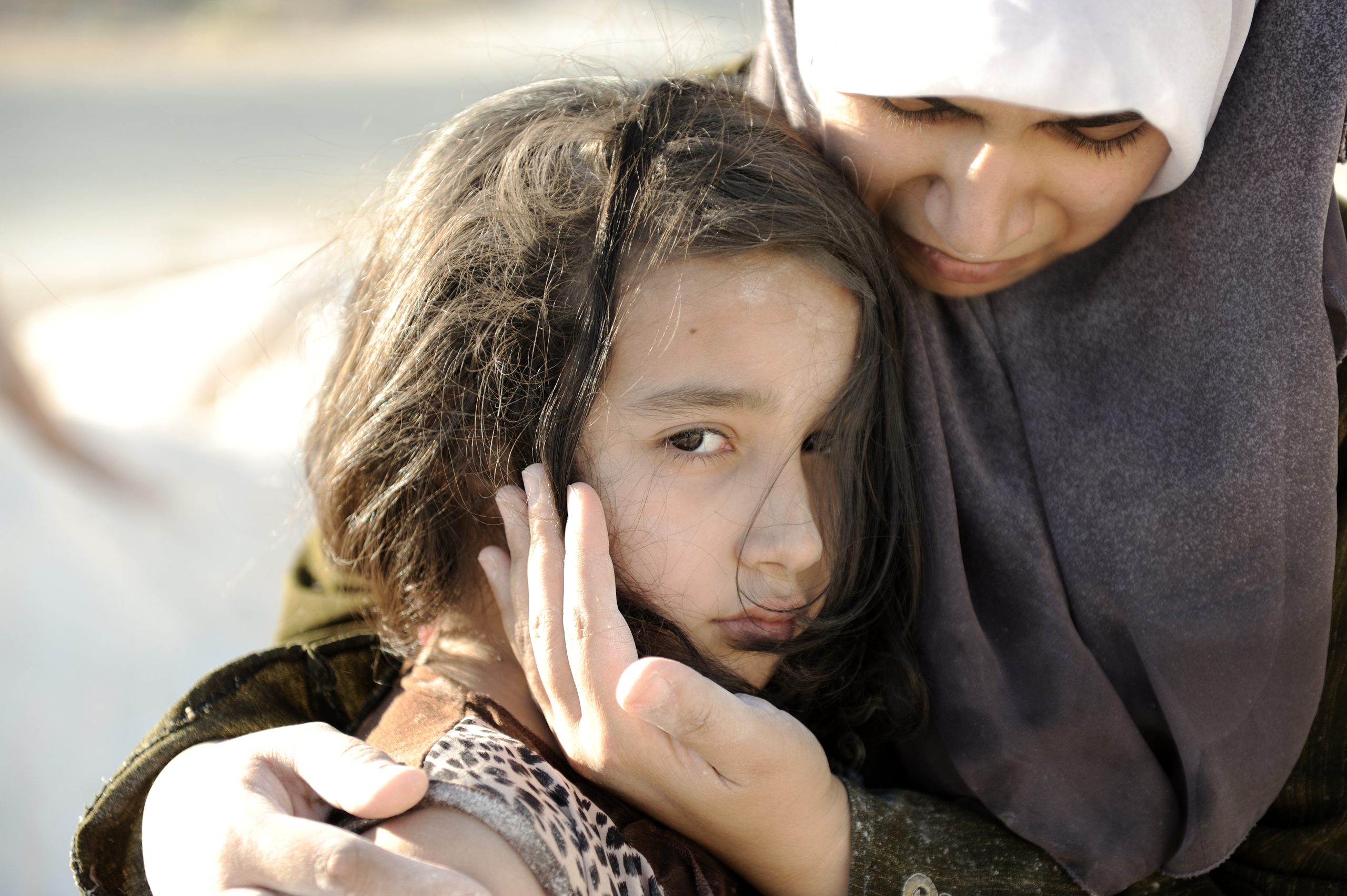INSIGHT: “Trump’s extreme vetting for refugees? Already here” – by Nicholas Logothetis and Stephen Yale-Loehr
New restrictions would raise the specter of ideological exclusion

In this article, which first appeared in USA Today, Nicholas Logothetis, co-founder and Chairman of Concordia and Stephen Yale-Loehr, professor of immigration law practice at Cornell Law School, discuss how proposed new restrictions on refugees entering the USA could persecute refugees again through ideological exclusion, and that refugees bring actual economic benefits through filling gaps in the labour market and increasing productivity.
During his campaign, Donald Trump vowed that he would impose “extreme vetting” of refugees. The president is expected to do that soon through an executive order that suspends refugee admissions until tighter security checks are put in place. But extreme vetting already occurs.
For example, Syrian refugees wait an average of 18 months to 24 months before being admitted to the United States. The 21-step screening process goes through multiple agencies, including the United Nations High Commissioner for Refugees, the U.S. State Department, the FBI and the U.S. Department of Homeland Security. Applicants undergo two and sometimes three interagency security checks to make sure nothing disqualifies them for admission to America. Refugee applicants also undergo a comprehensive medical examination to ensure that they don’t have a contagious disease.
Refugees continue to be screened after they arrive in the USA. Within a year, they can apply for a green card. Five years later, they can apply to become naturalized U.S. citizens. The federal government conducts background screening procedures at both steps. In fact, the government has a special program called the Controlled Application Review and Resolution Program that can delay refugees’ and others’ applications for years based on alleged national security concerns. Several immigrants have had to sue the U.S. immigration agency to get their cases out of this black hole.
The Cato Institute calculates that the chance of being killed in a terrorist attack committed by a refugee is about one in 3.6 billion a year. By comparison, CATO found, your chance of being murdered by anyone is one in 14,000. The head of the U.S. Citizenship and Immigration Services told Congress in September that not a single act of actual terrorist violence has been committed by a refugee “who has undergone our screening procedures” since 9/11.
Studies have found that countries benefit economically from refugees because they fill gaps in the labor market and have a dynamic impact on investment and productivity growth. Moreover, most refugees are young, which helps aging societies, especially those with shrinking local working-age populations. In Utica, N.Y., for example, refugees have helped halt economic decline.
To impose even more extreme vetting would raise the specter of ideological exclusion. We have been down that road and rejected it. During the Cold War, the U.S. excluded and deported immigrants if they expressed views different from our own. In 1990, Congress wisely amended the immigration law to ban exclusion of aliens if their beliefs, statements, or associations would be lawful in America. Barring certain refugees simply because they belong to a particular religion constitutes ideological exclusion.
It is certainly appropriate to screen refugee applicants carefully. Because we already do that, we should bring more refugees to the USA, not fewer.
By definition, refugees have fled persecution. Let us not persecute them again by temporarily banning them or unduly delaying their entry into America by imposing additional but unnecessary security background checks. The U.S. should remain a beacon of hope for refugees rather than an unattainable goal because of security concerns, which are already being comprehensively addressed.
A plaque at the Statue of Liberty contains a quote attributed to Ben Franklin: “They that can give up essential liberty to obtain a little safety deserve neither liberty nor safety.” Let us remember those words as we deal with the largest refugee crisis since World War II.
- Stephen Yale-Loehr is professor of immigration law practice at Cornell Law School, where he co-directs an asylum clinic.
- Nicholas Logothetis is co-founder and chairman at Concordia, a non-partisan organization dedicated to promoting public-private collaboration.
Photo credit: Ben Hider/Getty Images

 2016 Concordia Summit convenes more than 200 world leaders
2016 Concordia Summit convenes more than 200 world leaders  Libra Group participates in White House call-to-action over global refugee crisis
Libra Group participates in White House call-to-action over global refugee crisis